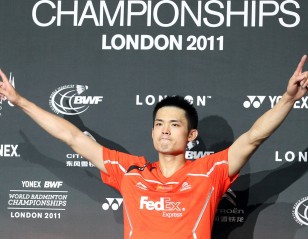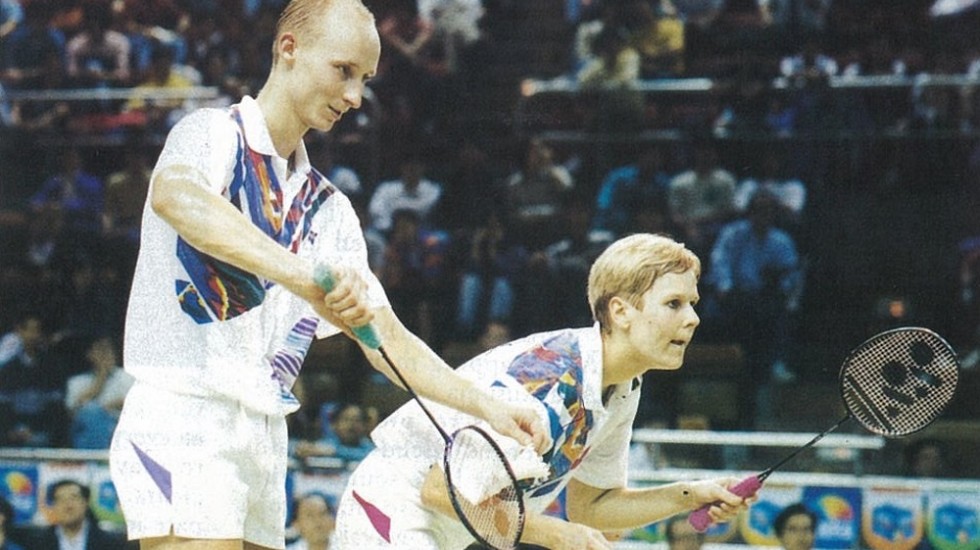
Memories of Lausanne 1995
When the TOTAL BWF World Championships 2019 begin in Basel in four months’ time, it will mark a return to Switzerland after nearly a quarter-century.
The World Championships in Lausanne was its ninth edition, and were held immediately after the fourth Sudirman Cup. (The two events were held together until 2001). The physical and mental effort that the back-to-back events took on the players was, of course, immense.
One of those who excelled at the World Championships 1995 was Thomas Lund, who won his second successive mixed doubles gold, and finished silver medallist in men’s doubles.
Lund, now the Secretary General of BWF, recounts his experiences of Lausanne:
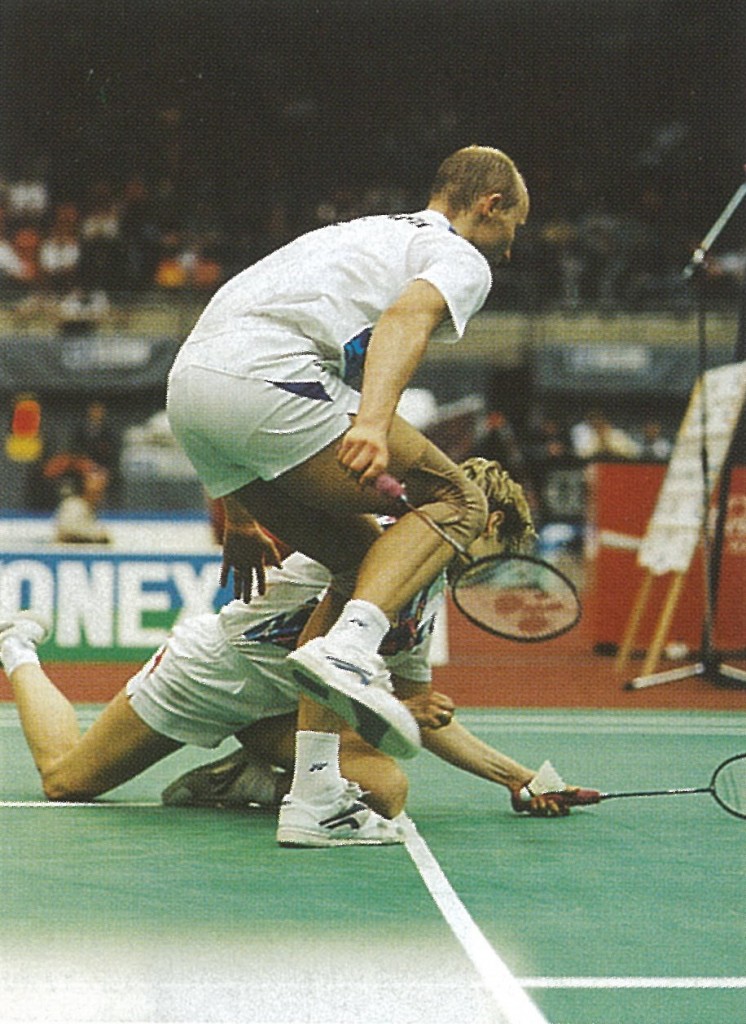
How difficult was it to play the World Championships immediately after the Sudirman Cup?
It was two long weeks, so it was quite competitive. It was quite intense in many ways. That’s probably why it was split up later on, because it was intense not only for the players, but the officials and also for the hosts.
I think it was the first big event in Lausanne. Obviously Lausanne had a very nice environment. It was a nice time of year, good food… that being said, the environment doesn’t matter that much because you’re playing and you’re going back and forth between hotel and venue.
You and Marlene Thomsen were the favourites in mixed doubles. You had won 11 tournaments in a row and were unbeaten.
I had some knee injuries, and I also got injured during the mixed doubles final. In that match I got an injury in my thigh, so I couldn’t play 100 per cent in the men’s doubles final with Jon (Holst-Christensen). I wouldn’t say we lost because of that, because we were playing Ricky (Subagja) and Rexy (Mainaky) and they were really good pair, but we weren’t able to play at 100 per cent.
You were unbeaten for almost two years in mixed doubles. What explained that chemistry? Because you had played with different partners, you’d won the previous world title with Sweden’s Catrine Bengtsson and the silver in 1991 with Pernille Dupont.
I first played with Pernille Dupont who got injured and I was at a tournament and I needed a partner and Catrine stepped in and we continued for a year. And because of the Olympics, both Sweden and Denmark thought it was better to find a national partner. I started playing with my now wife. The first tournament we played was Japan, and I injured my knee. So I was out for six months. That was 1994, so I was out from January… I think I managed to get back for the 1994 Thomas Cup. We had a good run and I don’t think we believed we could lose.
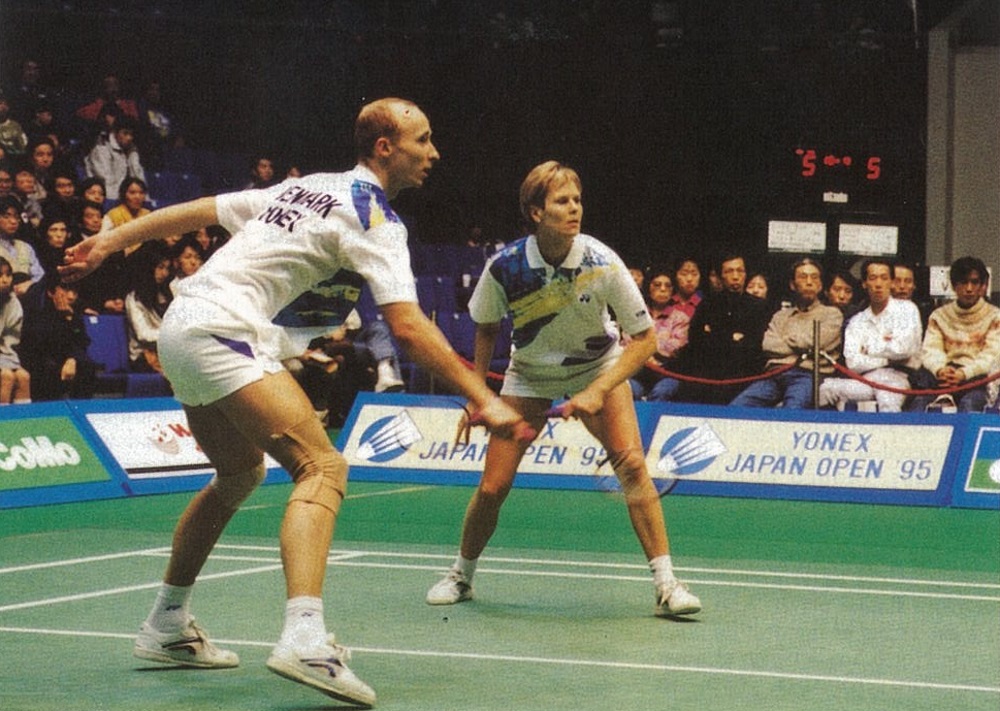
You had a tough semifinal, you almost lost to Sweden’s Jan-Eric Antonsson and Astrid Crabo, you were match point down…
I don’t think we believed we could lose. So we had that extra confidence. And players get into that thing where we have a way of playing and that little bit extra that makes you take that last step most of the time. The semifinal was our toughest match.
Would you say your injury was because you played the two doubles events at the same time?
No… not so much the knee injury. But the thigh injury was probably a mix. because I was walking with injuries those days. And that I played two events was probably the reason I got that injury. The was also the reason I didn’t play mixed doubles after that.
That was obviously a tough decision. It was a result of playing two events and having to qualify for the Olympics, and believing we could win a medal.
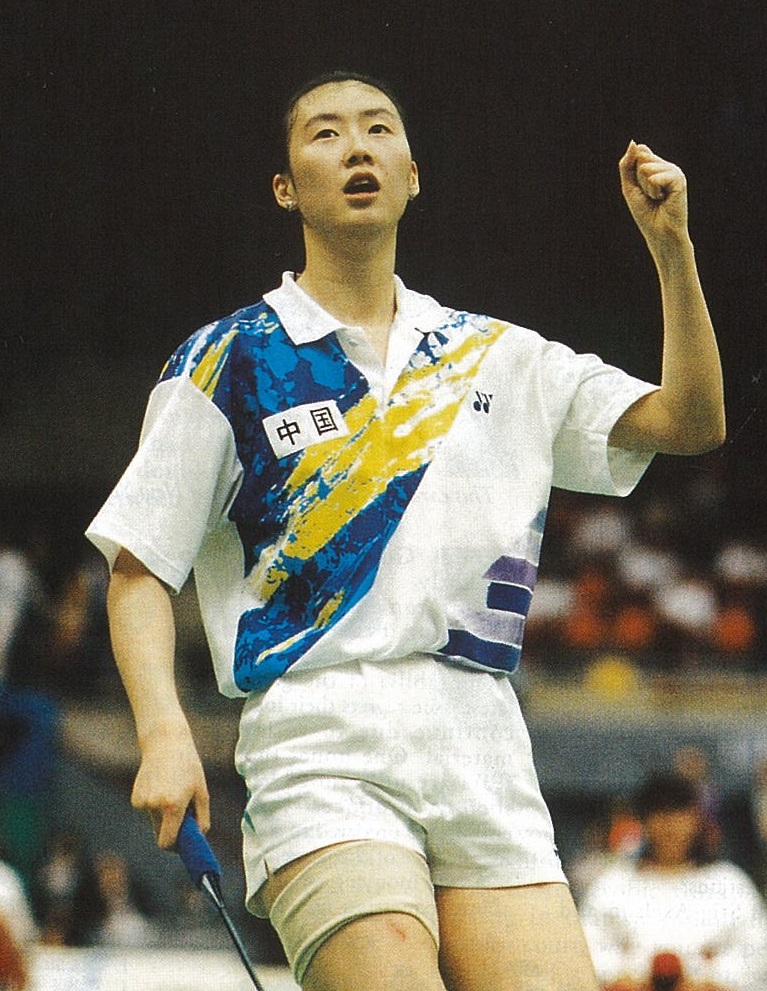
Your teammate Thomas Stuer-Lauridsen had a serious injury during the tournament.
That was a terrible injury. He had injuries leading up to that. He was playing really well, but probably because of those injuries, suddenly stepped over and hurt himself really bad. He struggled with it for a long time.
Heryanto Arbi won the men’s singles. Your thoughts of him?
He was a fantastic player, one of the players we were close to. He was very social, one of those from Asia who was outgoing and fun to be with.
He had his ability to change tempo within a rally… he had a very defensive, very smooth way of playing, and then he could suddenly (get) very edgy and strong attack. In some ways, he was quite all round, but with an attacking style.
And Ye Zhaoying won the women’s singles…
She was one of the fantastic players of that time. One of those who was there for a while… when you look today, we see more of the Chinese playing for longer. They didn’t play for that long (those days). There was a quick turnaround, so you didn’t get to know them for a long time.
She was one of those we connected with, she was friends with Camilla Martin. Technically she was amazing. She stood out from the others.
That time, China pumped out players in an unbelievable way. Younger ones all the time were pushing their way through. Now it’s more difficult to produce a player for that level, so they tend to stay on.
What are your memories of Lausanne?
It was great, a fantastic tournament. I have only good memories of that tournament.
World Championships News
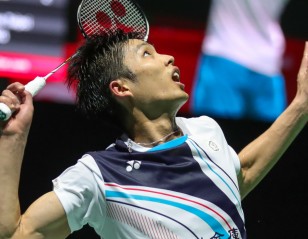
Lessons Learnt, Parting Perspectives 14 September 2019
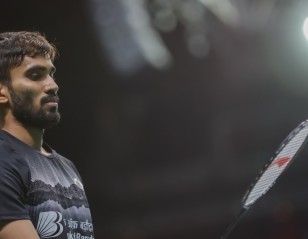
Kidambi Srikanth – A Search for Form 13 September 2019
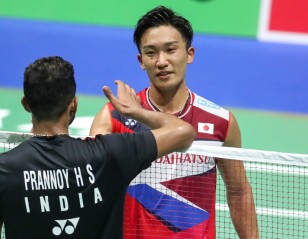
Momota, in the Eyes of his Opponents 12 September 2019
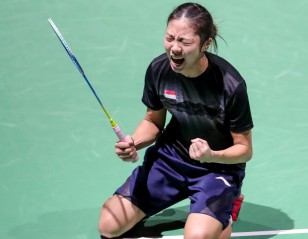
Recap: Upsets at the World Championships 10 September 2019
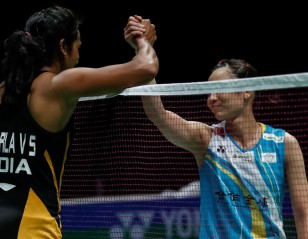
Recap: Memorable Matches of the World Championships 8 September 2019
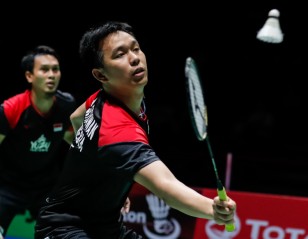
Highlights of the World Championships 7 September 2019
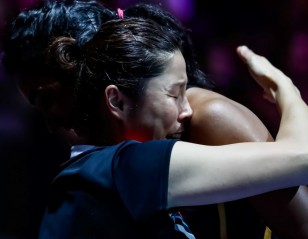
Played ‘Two’ Perfection – Basel 2019 4 September 2019
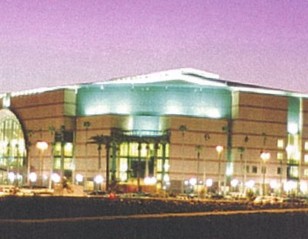
Badminton, Ice Hockey and the World Championships 4 September 2019
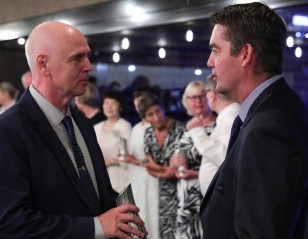
Three-Event Titan – 25th Edition World C’ships 3 September 2019
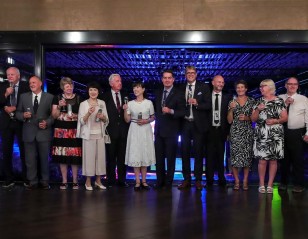
Legends of ’77 – 25th Edition World C’Ships 31 August 2019
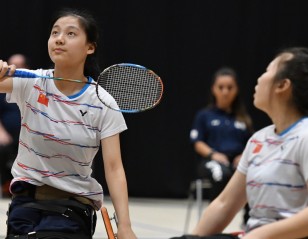
Para Badminton Event Comes to a Close – Basel 2019 27 August 2019
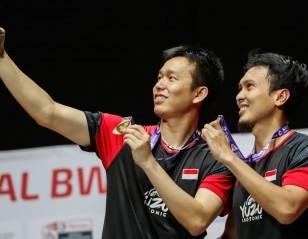
Wristy Trickery Wins the Day – Basel 2019 26 August 2019
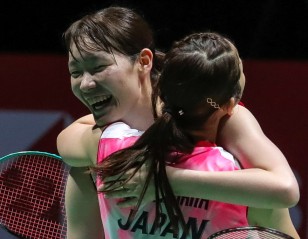
Great Comeback Falls Short – Basel 2019 26 August 2019
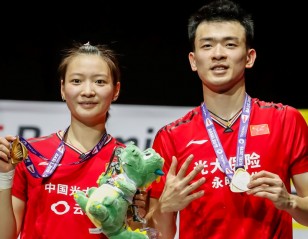
Mixed Doubles ‘Great Wall’ Intact – Basel 2019 26 August 2019
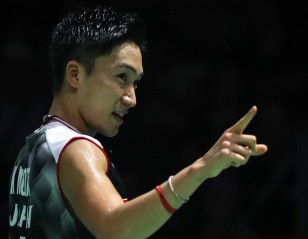
Antonsen Bows to Momota’s Class – Basel 2019 25 August 2019
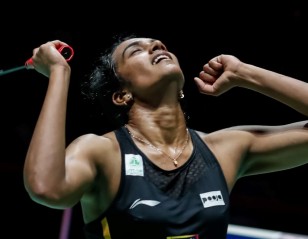
Gold – At Last! – Basel 2019 25 August 2019
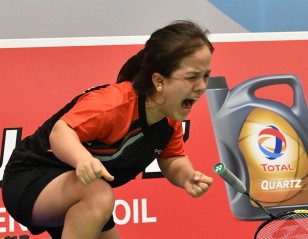
Poveda Makes It a First for Peru – Basel 2019 25 August 2019
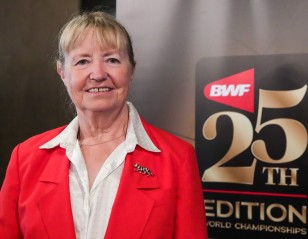
Legend Who Broke Records and Paved the Way for Future Stars –... 25 August 2019
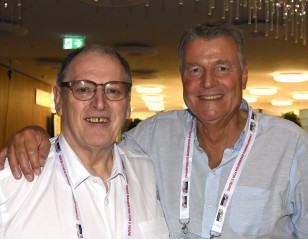
Ray’s a Real Sport – 25th Edition World C’Ships 25 August 2019
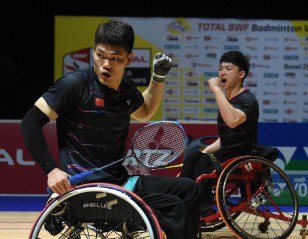
China Take Two Gold – Basel 2019 25 August 2019
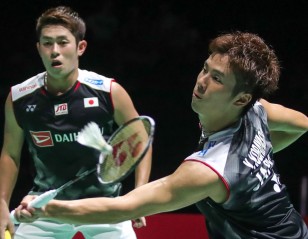
‘Upsetting’ Night for China – Basel 2019 24 August 2019
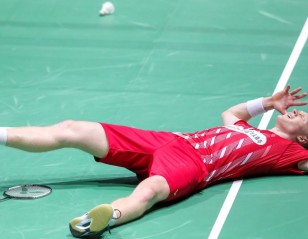
Antonsen’s ‘Insane’ Dream – Basel 2019 24 August 2019
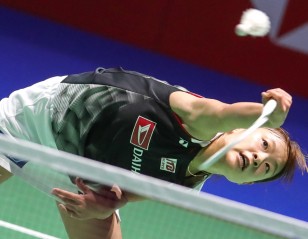
Glasgow ’17 on the Cards – Basel 2019 24 August 2019
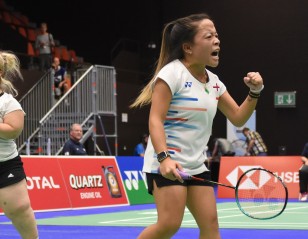
Five Down, Seventeen to Go – Basel 2019 24 August 2019
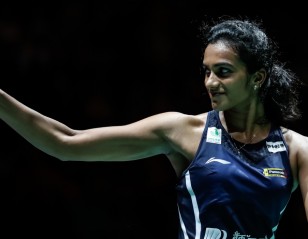
Sindhu Assures Herself: Tomorrow Will Be Different 24 August 2019
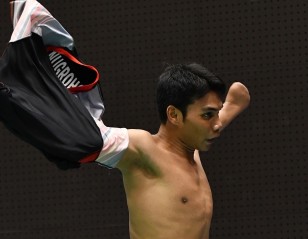
Para Badminton Athletes Turn It Up a Notch – Basel 2019 24 August 2019
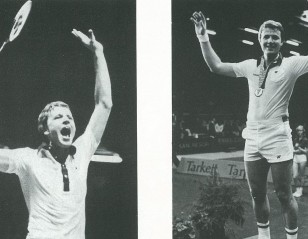
Flaming Dane Set Courts Aglow – 25th Edition World C’Ships 24 August 2019
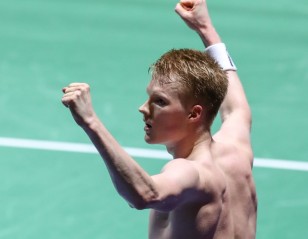
Antonsen Delivers for Europe – Basel 2019 23 August 2019
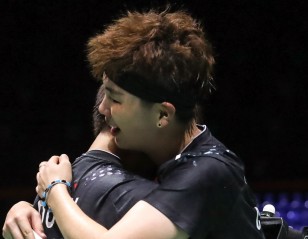
Du/Li Stand Tall After 2-Hour Epic – Basel 2019 23 August 2019
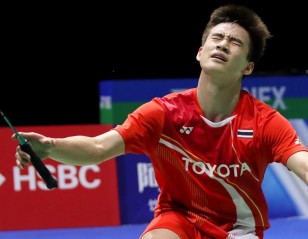
Kantaphon Leads Thailand’s Record Haul – Basel 2019 23 August 2019
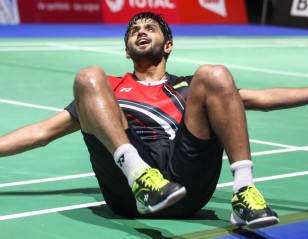
Sensational Session for India – Basel 2019 23 August 2019
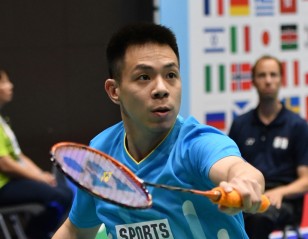
Tall Order for Standing Men – Basel 2019 23 August 2019
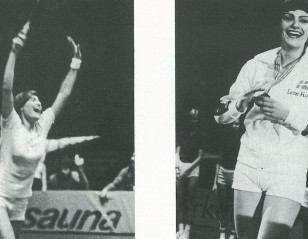
Crowd Pleasing Superstar – 25th Edition World C’Ships 23 August 2019
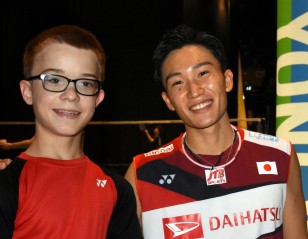
Teenage Shuttler Meets His Idol – Basel 2019 23 August 2019
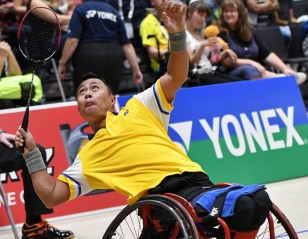
Wheelchair Top Seed Toppled – Basel 2019 23 August 2019
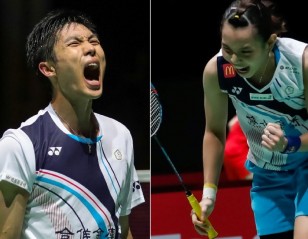
‘Two’ Much Trouble! – Basel 2019 22 August 2019
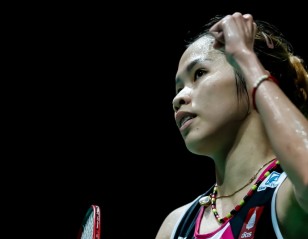
Intanon Survives Scare – Basel 2019 22 August 2019
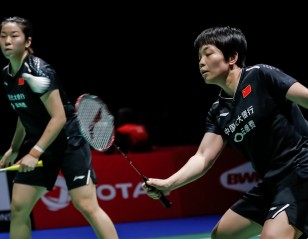
BWF Statement – TOTAL BWF World Championships 2019 22 August 2019
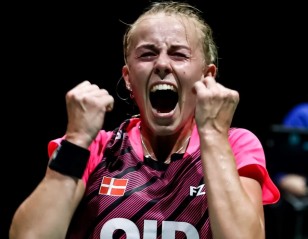
Belated Birthday Blitz! – Basel 2019 22 August 2019
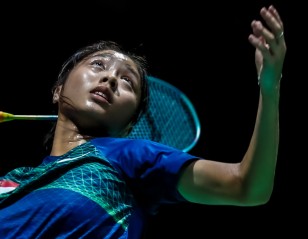
Back Problem Doesn’t Stall Jia Min – Basel 2019 22 August 2019
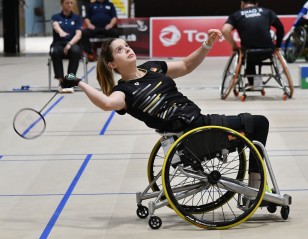
Girl Power – Basel 2019 22 August 2019
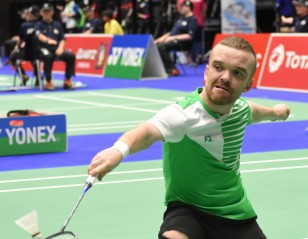
Group Rounds Move into Main Draw – Basel 2019 22 August 2019
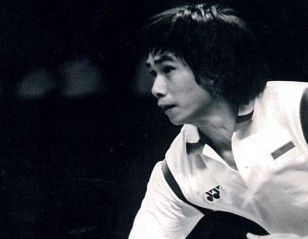
Lessons from the Seventies – 25th Edition World C’Ships 22 August 2019
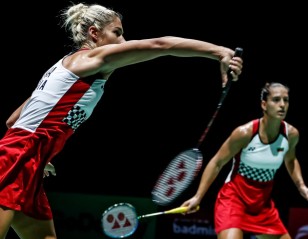
Women Getting in Gear – Basel 2019 21 August 2019
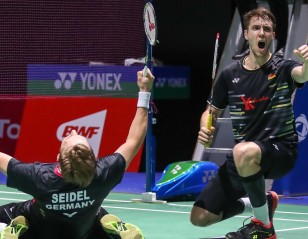
German Shock for Fifth Seeds – Basel 2019 21 August 2019
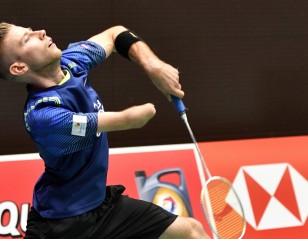
I Feel at Home says Mroz – Basel 2019 21 August 2019
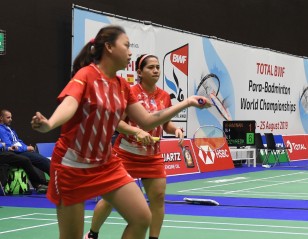
The Power of the Mind – Basel 2019 21 August 2019
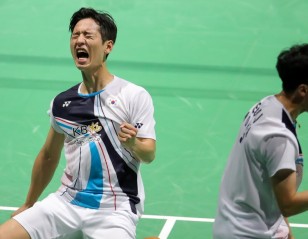
Minions Crash Land at Worlds Yet Again – Basel 2019 21 August 2019
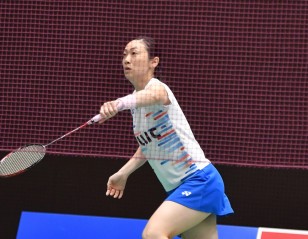
Suzuki Banks on Experience Over Age – Basel 2019 21 August 2019
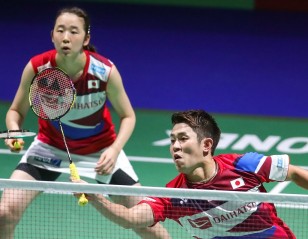
Nagahara ‘Mixing It Up’ – Basel 2019 20 August 2019
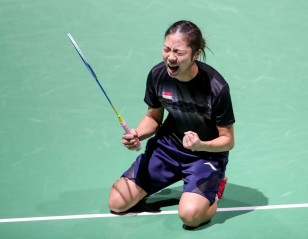
Jia Min Ousts Top Seed – Basel 2019 20 August 2019
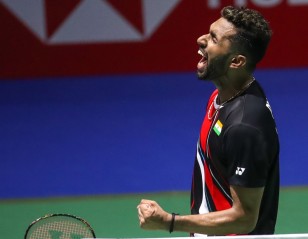
Lin’s Challenge Sputters Out – Basel 2019 20 August 2019
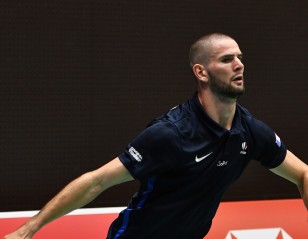
Mazur On Track to Retain Crown – Basel 2019 20 August 2019
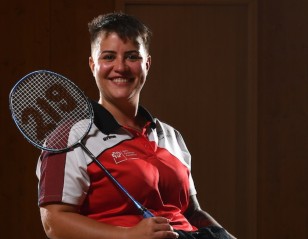
Trading One Set of Wheels for Another 20 August 2019
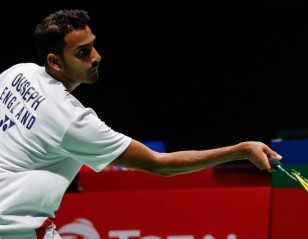
Ouseph Exits Stage, Bids Goodbye – Basel 2019 19 August 2019
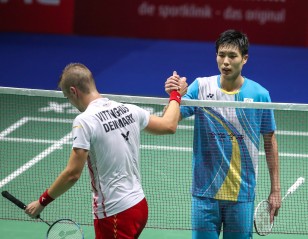
Chou Survives Danish Test – Basel 2019 19 August 2019
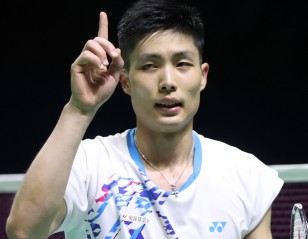
A Title Dedicated to a Battle Against Cancer 19 August 2019
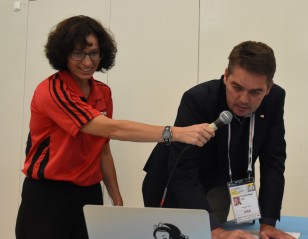
Draw Provides an Even Playing Field for All 18 August 2019
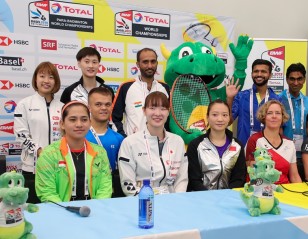
Para-llel Event a Unique Experience for Badminton Fraternity 18 August 2019
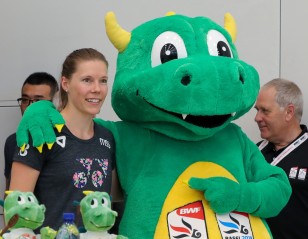
An Occasion to Cherish for Jaquet – Basel 2019 18 August 2019
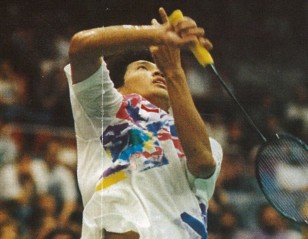
‘100 Watt Smash’ that Lit Up Lausanne – 25th Edition World C’Ships 17 August 2019
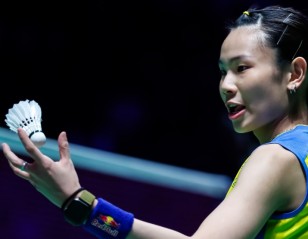
Preview: Worlds of Opportunity 17 August 2019
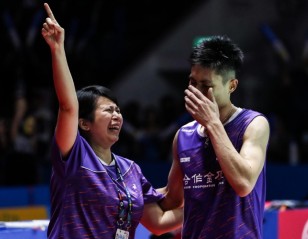
By Chou’s Side 16 August 2019
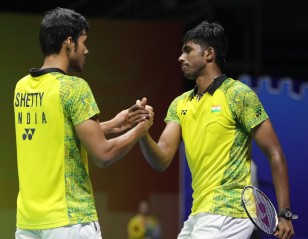
Satwik/Chirag to Miss World Championships 16 August 2019
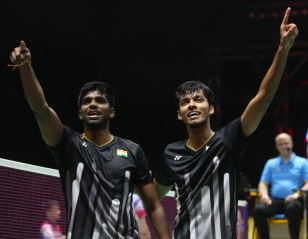
Indian Pair Blazes a Trail 15 August 2019
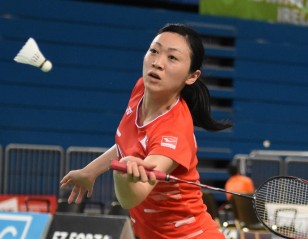
Awesome Threesome of SU5 – Para Badminton World C’Ships 14 August 2019
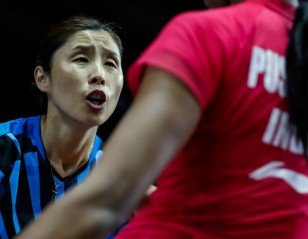
Life Lessons, From Coach Kim Ji Hyun 14 August 2019
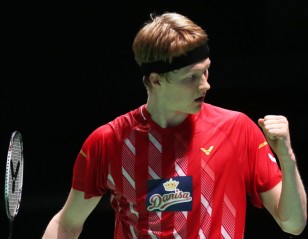
Free of Pressure, Antonsen Senses His Chance 13 August 2019
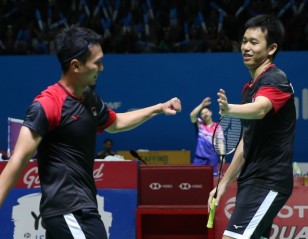
Ahsan/Hendra Play it Cool Despite Hot Form 11 August 2019
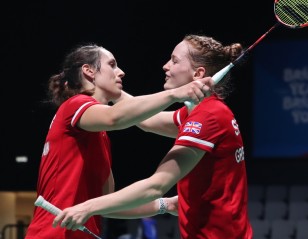
England Duo Anticipate Fruitful Week in Basel 10 August 2019

Women’s Singles Re-Draw – TOTAL BWF World Championships 2019 9 August 2019
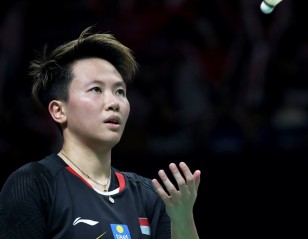
Winny Will Need Support: Liliyana Natsir 8 August 2019
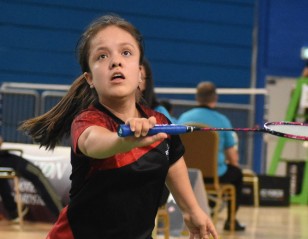
Sports Upbringing Gives Edge to Poveda 7 August 2019
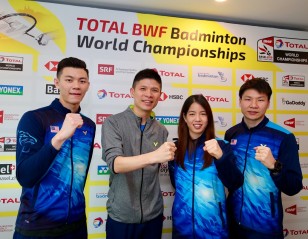
World Championships Draw Released 5 August 2019
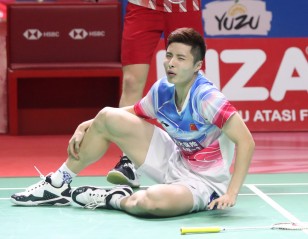
Marin, Shi Join Axelsen on Sidelines 5 August 2019
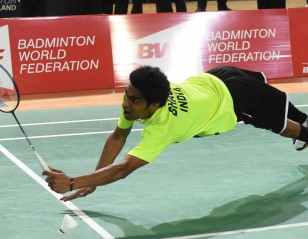
New Para Badminton Chapter Unfolds in Basel 1 August 2019
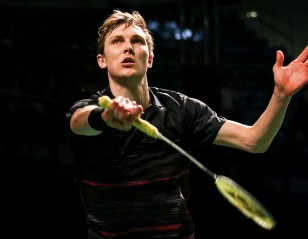
Injured Axelsen Withdraws From World Championships 31 July 2019
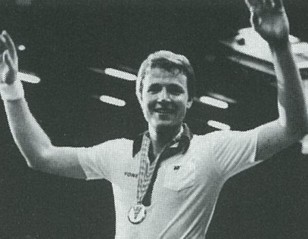
From Malmo to Basel – 25th Edition World C’Ships 30 July 2019
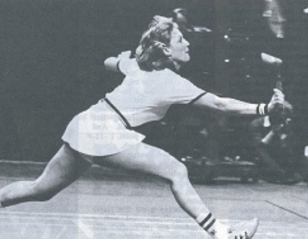
Famous Five and the Good Old Days – 25th Edition World C’Ships 19 July 2019
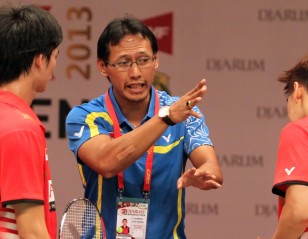
Revisiting a Hero: Sigit Budiarto 11 July 2019
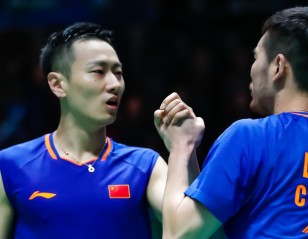
History Beckons Zhang Nan 10 July 2019
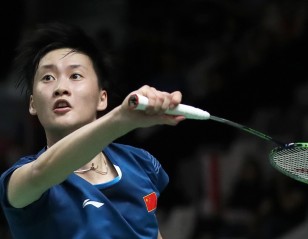
Chen To Lead China’s Charge 9 July 2019
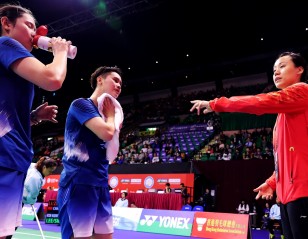
19 Days Left To Register for World Coaching Conference 26 June 2019
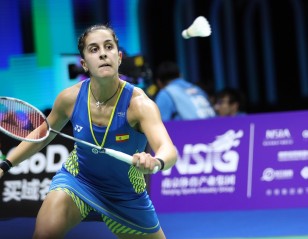
Marin on the Mend and Eyes Return 22 June 2019
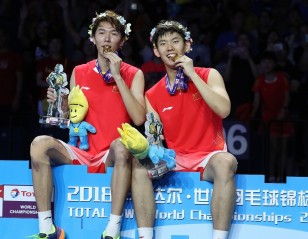
Two Months To Go – World C’Ships Countdown 19 June 2019
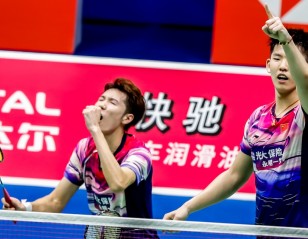
Li & Liu – Stepping Up When It Matters 7 June 2019
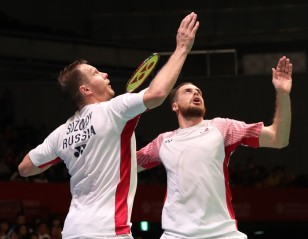
Ivanov & Sozonov Rekindle The Fire 3 June 2019
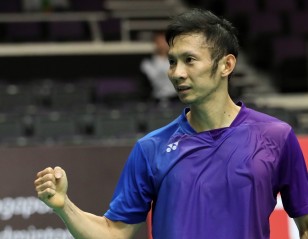
Tien Minh – Veteran Still Chasing His Dreams 2 June 2019
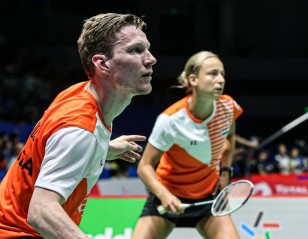
Confidence Boost for Dutch Duo 1 June 2019
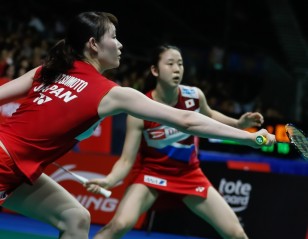
Matsumoto & Nagahara: Rapid Ascent to Pinnacle 8 May 2019
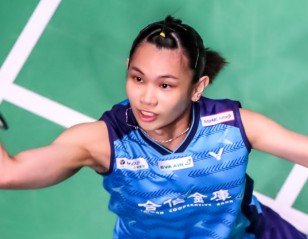
Tai Eases into Top Gear 25 April 2019
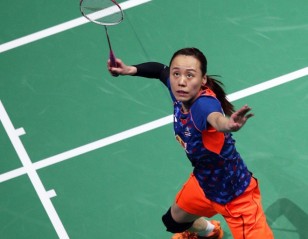
Zhao Yunlei Star Speaker at Coaching Conference 24 April 2019
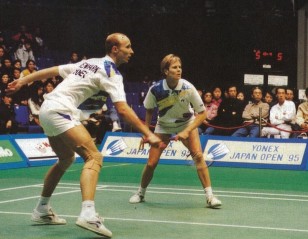
‘The Physical Level Has Gone Up’ 22 April 2019
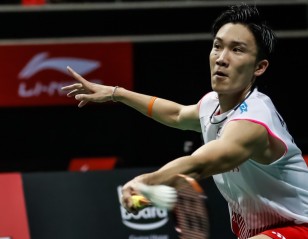
Momota Sets the Pace, but Speedbreakers Lurk 18 April 2019
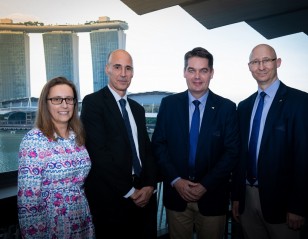
BWF and Total Celebrate Five Years of Partnership 18 April 2019
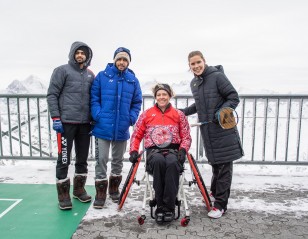
Badminton Thrust into Bright Lights – World C’Ships 13 March 2019

Gold and Glory for Arbi – Throwback ’95 World C’ships 19 February 2019

GoDaddy Extends Major Events Partnership with BWF 11 February 2019
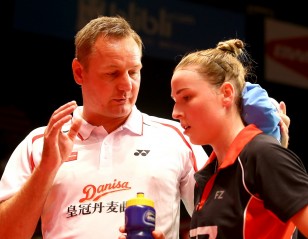
Star speakers assembled for BWF World Coaching Conference 2019 30 January 2019
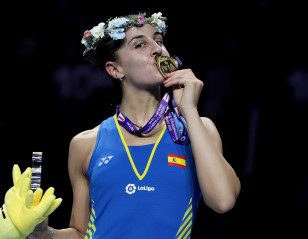
Singles Champions – Down the Ages 20 December 2018
